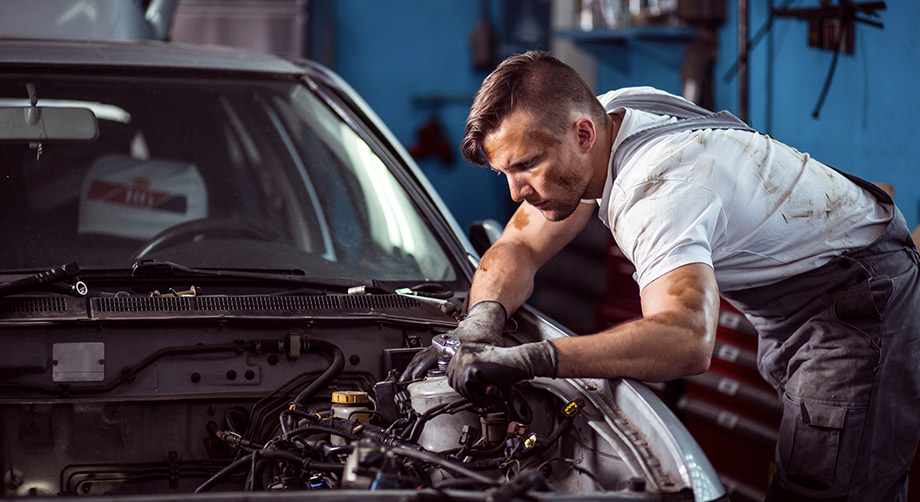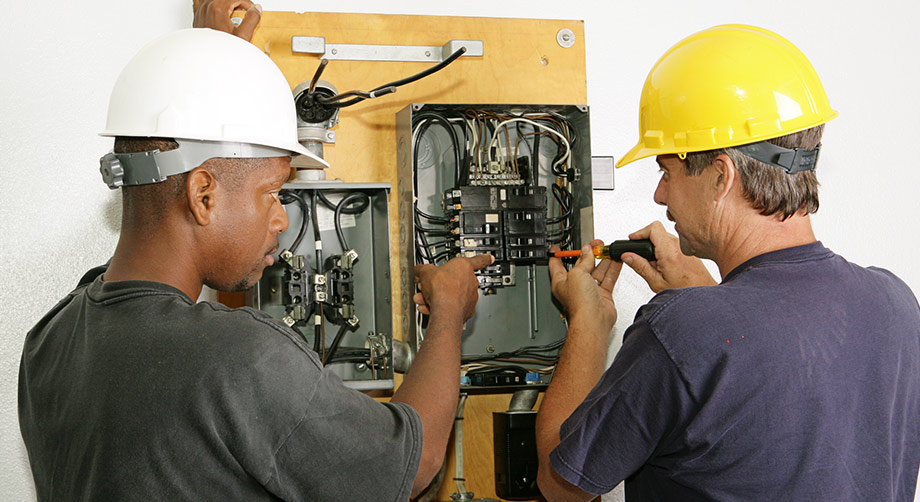What Does a Diesel Technician Do?
What Does a Diesel Technician Do?
Buses, trucks, trains, and diesel engine cars help keep our country running by transporting people and supplies across the world. It takes a lot of horsepower and highly skilled mechanics to keep these vehicles in motion—that’s the job of diesel technicians. These highly skilled professionals are in charge of inspecting, maintaining, and repairing these machines so they are ready to perform when needed. But what does a diesel technician do?
Where Does a Diesel Technician Work?
Diesel engines are used in cars, trucks, construction machinery, mining and farm equipment, and railway, subway, and locomotive vehicles. Because of this wide variety in how diesel technology is used across many different industries, diesel technicians can find employment in all kinds of work settings throughout the country.
Cars and Trucks
Diesel technicians who work on truck engines often work for trucking companies, government agencies, wholesale trade firms, and small repair shops. These technicians specialize in working on diesel engines that would typically be found in the cars and trucks we see on our roads.
Farm Equipment
Most large farm equipment is powered by a diesel engine and many large farms employ diesel technicians to maintain and repair these types of machines. These diesel techs ensure the farm equipment is ready to be used as needed. Jobs with repair shops specializing in farm equipment and with government entities are also available to those who are trained in the maintenance of diesel engine farm equipment.
Construction and Mining
The largest diesel engines can be found on construction and mining equipment. Bulldozers, cranes, graders, and excavators need to be kept in pristine working order to keep a construction or mining site up and running. This is the job of a diesel technician. These specialists have a solid understanding of these big machines and are often hired by large construction and mining companies, government agencies, diesel repair shops, or wholesale trade firms.
Railways
Diesel engines are also used to run our railways, and diesel technicians are needed to help inspect, repair, and maintain train engines, subway cars, and locomotives. The individuals charged with this responsibility often work for public and private transit companies, various railroad firms, and manufactures.
Is the Job of a Diesel Technician Hard Work?
Working as a diesel technician is physically demanding. These professionals will use heavy tools and move large equipment—and they definitely get their hands dirty while repairing engines. At times, diesel technicians may find themselves in awkward positions while working on an engine, including working in tight spaces.
Many diesel technicians work indoors in repair shops. These shops are well-ventilated and often noisy. But sometimes techs are expected to work outdoors or anywhere the equipment is being used. They may have to travel to a specific job site or work unconventional hours to ensure the engine is repaired. Repairs like this are made all year long, so technicians should be prepared to work in all types of weather conditions.
Most diesel technicians work full-time, and this can include evenings and weekends depending on how their employer schedules shifts. Overtime is also common in this field, but depends on the demand of the shop or company the technician works for. On average, according to 2018 national data from the Bureau of Labor Statistics, a diesel technician makes $47,350 each year or $22.76 an hour.
How to Become a Diesel Technician
Diesel technicians typically hold a high school diploma or GED. Although many diesel technicians could complete on-the-job training in order to gain employment, many employers seek employees with a postsecondary training program. These programs, like the ones offered by the Imagine America Foundation’s member schools, teach students safety and skills while in the classroom. They also provide preparation for industry certification in the field of diesel technology.
While in school, students are introduced to the different types of diesel technology. They are trained on a variety of engines so they can leave the classroom and be confident no matter which environment they decide to work in. These schools have instructors who are experienced in the field of diesel technology. They provide hands-on training and industry instruction to their students so they can be successful on the job. Most career training certificates take one to two years to complete. Once on the job, technicians typically earn full certification after three to four years.
Starting a new career path in the field of diesel technology can be intimidating, but once you’re on the job and loving what you do for a living, you can be confident you made the right choice. If you’ve always had a passion for engines, trucks, and big machinery, being a diesel technician could be the perfect fit. Now is the perfect time to start your education engine!
More on Diesel
Narrowing the Skills Gap: The UTI Way
Sponsored by: The Skills Gap. We’ve been talking about it for years. It’s a real problem in our world today, yet the gap is not narrowing. It’s talked about in many educational circles. At Universal Technical Institute, we are taking a proactive approach as we…
Diesel Technician Careers with Ohio Technical College
Diesel Technician Careers with Ohio Technical College – Season 4 episode 11 MORE FROM OUR EPISODE With Ohio Technical College Where Is Their Campus Located? OHIO TECHNICAL COLLEGE — CLEVELAND Visit Their Website Location 1374 E 51st StreetCleveland, OH 44103 Contact OHIO TECH Phone: 1-800-322-7000…
Leave a Reply Cancel reply
- - ADVERTISEMENT - -
Categories
- Alumni Series (13)
- Automotive (57)
- Aviation (15)
- Business (14)
- Business & Arts (18)
- Career College Expositions (7)
- Career Development (96)
- CCC Blog (1)
- CCC Podcast (9)
- College Resource (90)
- College Showcase – Lincoln Tech (6)
- College Showcase – New Jersey (8)
- College Showcase – Pennco Tech (1)
- College Showcase – Universal Technical Institute (2)
- Continuing Education (154)
- Cosmetology (3)
- Counselor Resources (108)
- Criminal Justice (3)
- Dental Assistant (2)
- Education (109)
- Financial Literacy (17)
- Health Sciences (50)
- Heritage Series (3)
- High School Recruitment Series (4)
- Housing Series (10)
- HVAC (8)
- Imagine America Scholarships (12)
- Information Technology (17)
- Massage Therapy (5)
- Mechanical Sciences (109)
- Medical Assistant (12)
- Millennial Student Series (4)
- News (11)
- Nursing (22)
- Online education (13)
- Pandemic Proof Series (4)
- Personal Finance (17)
- Podcast (90)
- Research (11)
- Road Map Series (2)
- Scholarships (12)
- Social Media Series (4)
- Strata Tech (3)
- Student Success (29)
- Study Tips (3)
- Time Managment (1)
- Top 10 (10)
- Trucking (2)
- Uncategorized (14)
- Universal Technical Institute (19)
- Veteran Affairs (8)
- Welding (24)
- Women in Skilled Trades (3)
Tags
- - ADVERTISEMENT - -







